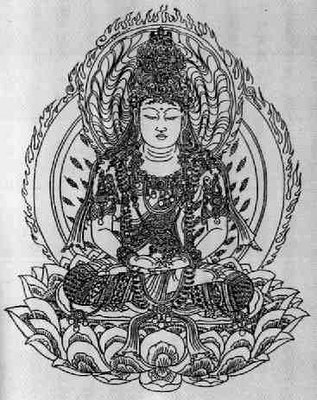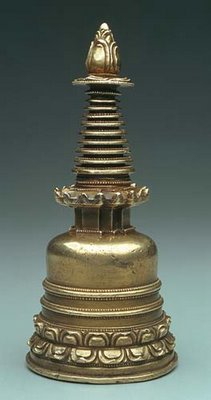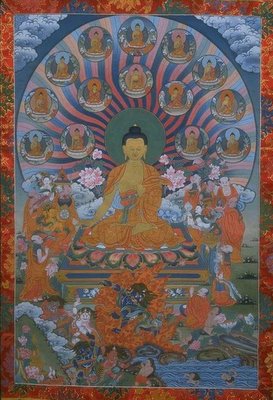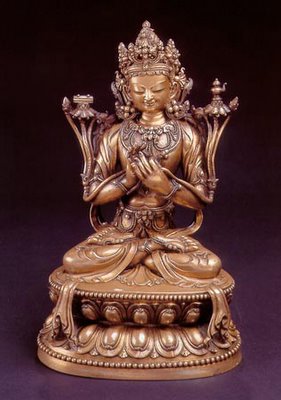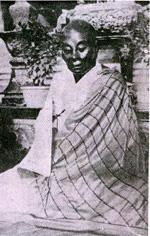
Hui Neng, the 6th Patriach said:
"Having no wrong in the Buddha-nature is true morality,Having no ignorance in the Buddha-nature is true wisdom,Having no distraction in the Buddha-nature is true concentration.Neither increasing nor decreasing makes it adamantine,Whether coming or going it always remain in Samadhi."As we know, the 3 foundations of the path to Nibbana is Sila (morality), Samadhi (concentration) & Panna (wisdom). What exactly are they? Most Buddhists believe that following and not breaking the percepts is called Sila, practicing meditation & attaining Jhana is called Samadhi, and developing insight from the basis of Samadhi is called Panna. When Sila, Samadhi & Panna completely overcome the defilements in the mind, one realizes Nibbana. That is a very literal way of understanding the Dhamma, suitable for those who have not transcend duality.
However, when one realizes the non-duality of the absolute truth, one will see that the Buddha-nature is fundamenally pure and cannot be defiled - that is Sila.
Knowing that the true mind is immovable, the passions are stilled and one no longer any positive or negative emotions towards one's sensory experiences - that is Samadhi.
Seeing the purity of the Buddha-nature, yet not clinging to any concept of purity; knowing the immovablity of the true mind, yet not clinging to any concept of immovablity; such that one can perceive & differentiate all phenomena, yet never becoming attached to anything at all - that is Panna.
Understanding that the 3 foundations are fundamentally empty and that there is nothing to cultivate or attain is called the Equal Application of the 3 foundations. If you can practice the Dhamma in this way, then you are no different from the Buddha.
 The Shin Min papers today (26.12.05) carried a report on a Singaporean man & his wife who met with a tour bus collision accident on Malaysia's North-South Highway. Apparently he was only slightly injured, as compared with his wife, who suffered broken cheekbones & teeth on impact. The man, Mr Zhang Yanguo, attributed his escape from serious injuries to a popular Thai Buddhist Amulet (called a Somdej) he was wearing. The amulet's casing was cracked by the impact, but Mr Zhang only got away with some minor bruises & abrasions to his knees. Other passengers were all injured to various degrees, and the female bus conductor was the one who got killed as she was sitting right in front.
The Shin Min papers today (26.12.05) carried a report on a Singaporean man & his wife who met with a tour bus collision accident on Malaysia's North-South Highway. Apparently he was only slightly injured, as compared with his wife, who suffered broken cheekbones & teeth on impact. The man, Mr Zhang Yanguo, attributed his escape from serious injuries to a popular Thai Buddhist Amulet (called a Somdej) he was wearing. The amulet's casing was cracked by the impact, but Mr Zhang only got away with some minor bruises & abrasions to his knees. Other passengers were all injured to various degrees, and the female bus conductor was the one who got killed as she was sitting right in front.
